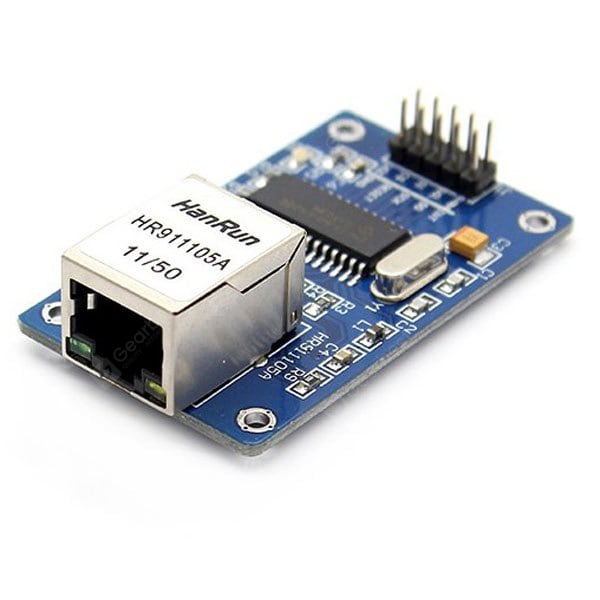Mbed library for ENC28J60 Ethernet modules. Full support for TCP/IP and UDP Server, Client and HTTP server (webserver). DHCP and DNS is included.
Dependents: mBuino_ENC28_MQTT Nucleo_Web_ENC28J60 Nucleo_Web_ENC28J60_ADC Serial_over_Ethernet ... more
Library for ENC28J60 Ethernet modules.

Ported to mbed from Norbert Truchsess's UIPEthernet library for Arduino. Thank you Norbert!
- Full support for persistent (streaming) TCP/IP and UDP connections Client and Server each, ARP, ICMP, DHCP and DNS.
- Works with both Mbed OS 2 and Mbed OS 5.
Usage:
- Import the library into your project.
- Add
#include "UipEthernet.h"tomain.cpp - Create one instance of the UipEthernet class initialized with the MAC address you'd like to use and SPI pins of the connected Mbed board.
Example programs:
Import programWebSwitch_ENC28J60
HTTP Server serving a simple webpage which enables to remotely turn a digital output on/off. Compile, download, run and type 'IP_address/secret/' (don't forget the last '/') into your web browser and hit ENTER.
Import programHTTPServer_Echo_ENC28J60
A simple HTTP server echoing received requests. Ethernet connection is over an ENC28J60 board. Usage: Type the server's IP address into you web browser and hit <ENTER>.
Import programTcpServer_ENC28J60
Simple TCP/IP Server using the UIPEthernet library for ENC28J60 Ethernet boards.
Import programTcpClient_ENC28J60
Simple TCP/IP Client using the UIPEthernet library for ENC28J60 Ethernet boards.
Import programUdpServer_ENC28J60
Simple UDP Server using the UIPEthernet library for ENC28J60 Ethernet boards.
Import programUdpClient_ENC28J60
Simple UDP Client using the UIPEthernet library for ENC28J60 Ethernet boards.
Import programMQTT_Hello_ENC28J60
MQTT Client example program. Ethernet connection is via an ENC28J60 module.
Diff: TcpServer.cpp
- Revision:
- 11:647d53d146f1
- Parent:
- 10:e4ddab81e6a8
- Child:
- 13:95c00132cd98
--- a/TcpServer.cpp Tue Aug 27 22:08:54 2019 +0000
+++ b/TcpServer.cpp Fri Aug 30 08:11:40 2019 +0000
@@ -28,8 +28,9 @@
* @param
* @retval
*/
-TcpServer::TcpServer()
-{ }
+TcpServer::TcpServer() :
+ _conns(1)
+{}
/**
* @brief
@@ -40,7 +41,7 @@
TcpClient* TcpServer::accept()
{
UipEthernet::ethernet->tick();
- for (uip_userdata_t * data = &TcpClient::all_data[0]; data < &TcpClient::all_data[UIP_CONNS]; data++) {
+ for (uip_userdata_t * data = &TcpClient::all_data[0]; data < &TcpClient::all_data[_conns]; data++) {
if
(
data->packets_in[0] != NOBLOCK &&
@@ -65,7 +66,10 @@
* @retval
*/
void TcpServer::open(UipEthernet* ethernet)
-{ }
+{
+ if (UipEthernet::ethernet != ethernet)
+ UipEthernet::ethernet = ethernet;
+}
/**
* @brief
@@ -122,7 +126,7 @@
size_t TcpServer::send(const uint8_t* buf, size_t size)
{
size_t ret = 0;
- for (uip_userdata_t * data = &TcpClient::all_data[0]; data < &TcpClient::all_data[UIP_CONNS]; data++) {
+ for (uip_userdata_t * data = &TcpClient::all_data[0]; data < &TcpClient::all_data[_conns]; data++) {
if ((data->state & UIP_CLIENT_CONNECTED) && uip_conns[data->state & UIP_CLIENT_SOCKETS].lport == _port)
ret += TcpClient::_write(data, buf, size);
}
